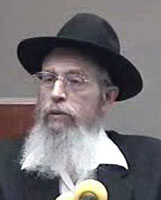Beit Midrash
- Torah Portion and Tanach
- Vayikra
- Emor
The other side of this coin is that the people of Israel were commanded to give extra honor and deference to the kohanim. Being a kohein one wears a special Godly crown. And it is that heaven granted crown that people are to admire and honor.Since there are no perfect human beings it is easy to find faults and weaknesses within individual kohanim. People would therefore denegrate the kohein whom they felt to be imperfect, for after all did not the prophet himself state that the kohein must appear to his public as though he were an angel of the Lord. Yet respect for the kohein, every kohein, is built into Jewish custom and ritual. His blessings are to be sought, he is to redeem our first born males, he is to have the opening aliya at the time of the public reading of the Torah, he is to lead us in the prayers after meals and he is to be exmpted from tasks of labor and service that often fall upon other Jews. Thus the kohein was charged with the task of living up to his role as an elite leader of his people while the people were charged with the value of giving honor and a place of primacy in Jewish public life to the kohein. Even though there is presently no Temple in Jerusalem that requires the epecial and exclusive attention of the kohanim, their status in Jewish life and society has been preserved throughout our long history. That is ceratinly the reward of the father of the kohanim, the great Aharon.
This Shiur is published also at Rabbi Kaganof's site





















